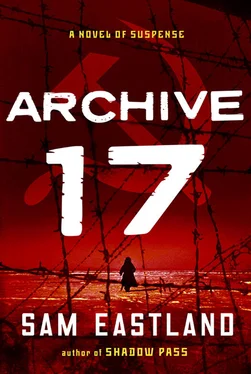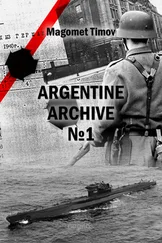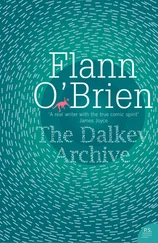Sam Eastland - Archive 17
Здесь есть возможность читать онлайн «Sam Eastland - Archive 17» весь текст электронной книги совершенно бесплатно (целиком полную версию без сокращений). В некоторых случаях можно слушать аудио, скачать через торрент в формате fb2 и присутствует краткое содержание. Жанр: Исторический детектив, на английском языке. Описание произведения, (предисловие) а так же отзывы посетителей доступны на портале библиотеки ЛибКат.
- Название:Archive 17
- Автор:
- Жанр:
- Год:неизвестен
- ISBN:нет данных
- Рейтинг книги:3 / 5. Голосов: 1
-
Избранное:Добавить в избранное
- Отзывы:
-
Ваша оценка:
- 60
- 1
- 2
- 3
- 4
- 5
Archive 17: краткое содержание, описание и аннотация
Предлагаем к чтению аннотацию, описание, краткое содержание или предисловие (зависит от того, что написал сам автор книги «Archive 17»). Если вы не нашли необходимую информацию о книге — напишите в комментариях, мы постараемся отыскать её.
Archive 17 — читать онлайн бесплатно полную книгу (весь текст) целиком
Ниже представлен текст книги, разбитый по страницам. Система сохранения места последней прочитанной страницы, позволяет с удобством читать онлайн бесплатно книгу «Archive 17», без необходимости каждый раз заново искать на чём Вы остановились. Поставьте закладку, и сможете в любой момент перейти на страницу, на которой закончили чтение.
Интервал:
Закладка:
For a long time, Pekkala stared into the dead man’s face-the alabaster skin, sunken eyes, and blue-black lips. He could not shake the feeling that he was staring at himself. “See you on the other side,” he murmured, and his breath uncoiled like silk into the still and frozen air.
“What?” asked Klenovkin. “What did you say?”
“I knew this man,” Pekkala replied. “I thought he had died long ago.”
“Well, he’s dead now, anyway.” Klenovkin tapped Pekkala on the shoulder. “Come on, let’s get the hell out of here.”
On their way back to Klenovkin’s office, Pekkala tried to fathom why on earth Vassileyev would have lied to him about this officer having survived the blast.
The answer soon became clear when Pekkala read the remainder of the telegram.
RYABOV COMMISSIONED BY TSAR TO MONITOR
KOLCHAK EXPEDITION STOP ACTIVITY OF AGENT
RYABOV NOT DISCLOSED TO OKHRANA STOP
The reason Vassileyev had not told Pekkala that there were survivors from the bomb at Grodek’s house was that he did not know of any. But the Tsar had not only lied to his own director of intelligence. He had lied to Pekkala as well.
The Tsar’s story had been very specific. He had told Pekkala that the precise location of the gold would be known only to Colonel Kolchak and his uncle, Admiral Alexander Kolchak of the Tsar’s Pacific fleet in Vladivostok. Even the Tsar himself was not to be told. There was good reason for this. Although the Tsar was confident that Kolchak could evade any attempt at capture by the Red Guards, the Tsar was equally certain that he himself would soon fall into captivity. And the first thing his captors would want to know was the location of the Imperial Reserves. Unless the Bolsheviks could be convinced that the Tsar didn’t know the whereabouts of his gold, they would resort to whatever means necessary to acquire that information.
For the Tsar, the trick would be in persuading these captors of his ignorance before they even asked the question.
Now, years later, an idea began to surface in Pekkala’s mind. At first it seemed so sinister that he felt sure this couldn’t be the answer. But the more he thought about it, the more convinced he became that it was true. The Tsar must have known that if Pekkala were arrested, he would be interrogated using whatever means the Bolshevik Security Service, known as the Cheka, thought necessary. For a man like Pekkala, in the hands of the Cheka, torture was a guarantee. The Bolsheviks would realize, as they beat and starved and questioned him, that Pekkala was telling the truth when he said that neither he nor the Tsar was aware of the gold’s hiding place.
Except it wasn’t the truth. It was a lie, but one that Pekkala had believed.
There was only one catch. For the Tsar’s plan to work, Pekkala would have to be caught.
It was the Tsar who had provided Pekkala with the means of escaping the country-forged papers, rail tickets, even the route he should take to avoid capture. But Pekkala never made it. At a small railway station on the Russo-Finnish border, with freedom almost within his grasp, Pekkala had been hauled off a crowded train by Bolshevik Revolutionary Guards. From there, he had begun his journey to Butyrka prison, and eventually to Borodok.
He had always wondered how the Revolutionary Guards singled him out so effectively. Now he knew.
The only way the Tsar could have guaranteed that Pekkala would be arrested was by revealing the information of his escape route to the enemy.
In this way the Tsar and his family would be spared the same fate as Pekkala. There would be no point in interrogating the Romanovs for information which they didn’t have.
The facts were inescapable.
The Tsar had betrayed him, his most trusted servant, who in return had trusted the Tsar with a devotion far beyond the value of his life.
It was an ingenious and intricate plan. Not surprisingly, the Tsar had calculated almost every detail, but the one thing he had not anticipated was that Kolchak might actually be caught. Or that the members of the Romanov family might be herded to the city of Ekaterinburg and, on a sultry August night in 1918, butchered in the basement of the Ipatiev house.
The knowledge that the Tsar had, in those final days of their acquaintance, offered him up as a sacrifice struck Pekkala like a hammer to his skull.
“Well,” demanded Klenovkin. “Do you have your answer?”
“I have an answer,” replied Pekkala. “But it was not the one I’d been expecting.”
As soon as Pekkala had left the room, Klenovkin began to pace like a cat trapped in a cage. He had read the telegram as soon as it came through but wasn’t able to make head or tail of it. And what did Pekkala mean, wondered the commandant, when he said it wasn’t the answer he’d been expecting? Klenovkin could not help but fear the worst. Pekkala was refusing to accept his theory about the Comitati. “And who else is there to accuse, but me?” he asked himself. Already, in feverish dreams, he had found himself before a board of inquiry, accused of Ryabov’s murder. To this imaginary jury he had pleaded his case, but was always found guilty.
“It’s time I took matters into my own hands,” he muttered to himself. Seating himself at his desk, Klenovkin took out a piece of paper and furiously scribbled a note.
Professor Braninko had fallen asleep as he sat at his desk, consolidating dusty files for the archives.
A banging on the metal door startled him awake. He breathed in sharply, rose stiffly to his feet, and straightened his tie as he walked towards the door.
The knocking came again.
Braninko knew who it was. Major Kirov had come to return the file he borrowed.
In the brief time he’d spent with Kirov, Braninko had been impressed by the young officer’s willingness to listen to the outbursts of an old man who had no one else to talk to except the unblinking statues of old generals and politicians. Before Kirov, there had been no visitors for several weeks, and after he left, there were unlikely to be others for a while.
As he made his way towards the door, the knocking continued.
“I heard you the first time,” muttered Braninko, but he was not angry. In fact, he was looking forward to seeing Kirov again. Of course, it would not be appropriate to appear too enthusiastic. He would maintain his usual reserve, but this time, he decided, he might at least offer the major a cup of tea. He had a kettle in the back room, and a few old tin cups, which he hoped were clean enough to use. As he opened the door, Braninko was trying to remember if he had any sugar left to sweeten the tea. He had just enough time to realize that the person outside was not Kirov before the air seemed to catch fire all around him.
The next thing Braninko knew, he was lying on his back, staring up at the ceiling of the archive. Someone had seized his ankles and was dragging him across the floor towards the back of the building. He could not understand what was happening. The only clear thought in the old professor’s head was that it felt undignified to be hauled around like this. With a feeble, barely conscious gesture, he reached up to adjust his tie, which suddenly felt too tight around his throat.
The man who was dragging him wore a dark hat and a coat which came down below his knees. Both were civilian garments. It occurred to Braninko to inform him that only government personnel were allowed in Archive 17.
What is wrong with me? Braninko wondered. His stomach felt strangely empty and he experienced a terrible thirst, as if he were lost in a desert.
At last the dragging stopped. The man let go of Braninko’s feet and the professor’s heels struck the floor hard.
Braninko was relieved to be lying still. He felt dizzy and sick. He glanced at his palm and realized he was covered with blood. Only now did it dawn on him that he had been shot. Tugging at the buttons of his vest, he pulled the cloth away and saw the deep red marks of two bullet holes punched through the fabric of his shirt.
Читать дальшеИнтервал:
Закладка:
Похожие книги на «Archive 17»
Представляем Вашему вниманию похожие книги на «Archive 17» списком для выбора. Мы отобрали схожую по названию и смыслу литературу в надежде предоставить читателям больше вариантов отыскать новые, интересные, ещё непрочитанные произведения.
Обсуждение, отзывы о книге «Archive 17» и просто собственные мнения читателей. Оставьте ваши комментарии, напишите, что Вы думаете о произведении, его смысле или главных героях. Укажите что конкретно понравилось, а что нет, и почему Вы так считаете.











